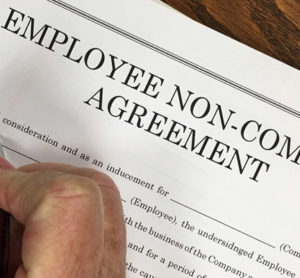
Daniel Scales, an employee working for hydrovac excavation company Badger Daylighting Corp., had a rude awakening after he quit his employment with Badger in California and began working for one of the firm’s California competitors. After he changed employers, Badger filed a breach of contract action against Scales in Indiana state court.
California has a prohibition against non-compete agreements, so the employee assumed he couldn’t be held to the agreement by Badger. He filed a lawsuit, Scales v. Badger Daylighting Corp. (Case No. 1:17-cv-00222-DAD-JLT), in California state court. In it Scales sought a declaratory judgment “that [his] respective Non-Competition Agreement [is] an unlawful and unenforceable restraint of trade, in violation of section 16600 of the California Business and Professions Code.”
However, Badger Daylighting, which conducts business in both Canada and the U.S., has its U.S. operations based in Indiana. Badger’s not-compete agreements also state that Indiana is the choice of forum and law for any disputes. After successfully moving the case to federal court in the Eastern District of California, Badger filed a motion to dismiss, which was granted by the court based on the agreement’s Indiana forum-selection clause. In rendering his decision, the judge cited numerous factors we won’t discuss, but you can read more, here, if you like.
Trial for the Indiana action is set for Jan. 23, 2018, at that time the court will determine the validity of the non-compete agreement. Ironically, there is a new code—California Labor Code § 925—that requires certain labor-related actions taken in California to be heard in California courts. It would have protected Scales if he had signed the non-compete with Badger after Jan. 1, 2017. Since he signed his employment agreement in August 2014, Scales was not covered by the protections of § 925.
This court case perfectly illustrates how neither employees nor employers can assume that the laws of their locations automatically control all their activities. Furthermore, California Labor Code § 925 points out the importance of staying up to date on changes in laws, ordinances and codes at every level.

